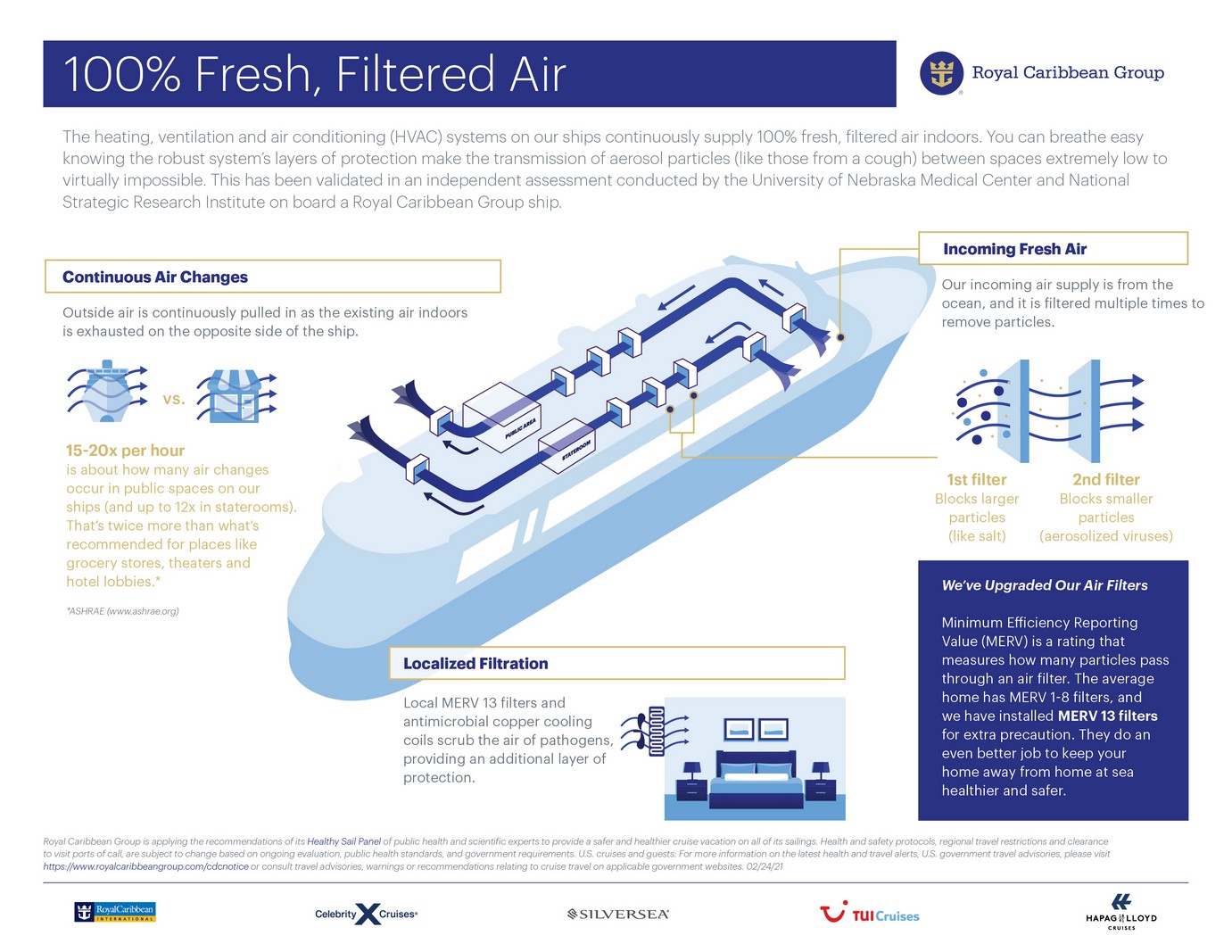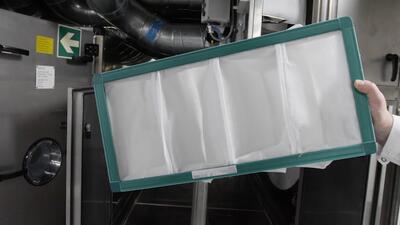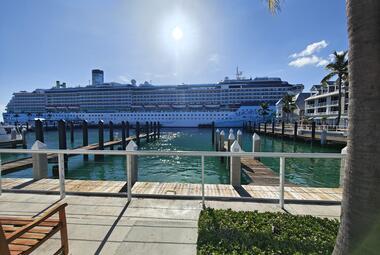Royal Caribbean Group revealed the findings of a new study that looked at how aerosol particles spread on a cruise ship's ventilation system.
The study was conducted by the Nebraska Medical Center (UNMC) and the National Strategic Research Institute (NSRI) onboard Royal Caribbean's Oasis of the Seas to evaluate the efficacy of HVAC systems on ships in order to assess and improve ventilation to combat COVID-19 spread.
During the study, the team of five medical scientists explored the effectiveness and efficiency of ship air management strategies -- ventilation, filtration and supply -- and examined air flow across different areas of the ship, including passenger cabins, crew cabins, lounges and other public spaces.

Their findings was that the transmission of aerosol particles through the ventilation system to be undetectable on surfaces, or in the air.
"Scientists found that the risk associated with transmission of airborne particles between spaces, through the HVAC system, is exceptionally low and undetectable both in the air and on surfaces."
Based on the study, Royal Caribbean Group adjusted its own ship practices to be even better at reducing the risks. New layers of protection that further minimize the possibility of spread by adjusting shipboard settings to allow for the maximum air changes per hour and upgrading to MERV (Minimum Efficiency Reporting Value) 13 filters throughout the system.
Royal Caribbean Group already equipped its medical facilities with an independent ventilation system and has added HEPA filters for additional precaution.
The full study can be viewed here.






